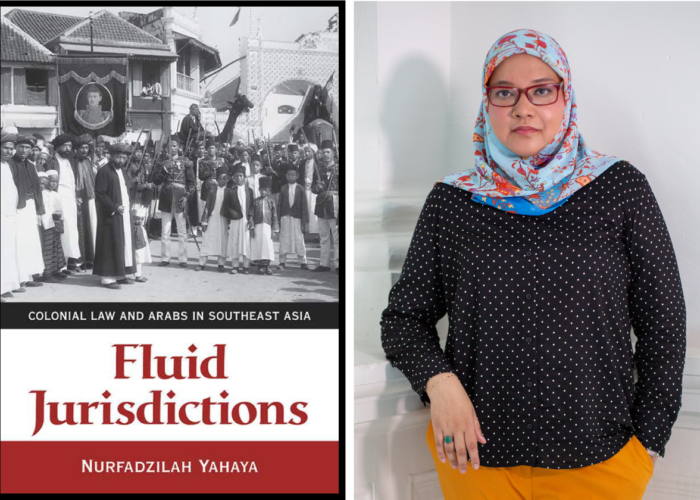HLS PIL Book Talk: Prof. Nurfadzilah Yahaya, “Fluid Jurisdictions: Colonial Law and Arabs in Southeast Asia”
Posted on August 28, 2020
September 15, 12:00-1:00PM EST via Zoom
Register here. *Registration required.

September 15, 12:00-1:00PM EST via Zoom
Register here. *Registration required.

Author: Faiz Ahmed, Associate Professor of History, Brown University
Moderator: Mariam Sheibani, Visiting Fellow, Program in Islamic Law, Harvard Law School
Respondent: Malika Zeghal, Prince Alwaleed Bin Talal Professor in Contemporary Islamic Thought and Life
In Afghanistan Rising, Faiz Ahmed presents a vibrant account of Afghanistan, the first Muslim-majority country to gain independence, codify its own laws, and ratify a constitution after the fall of the Ottoman Empire. He illustrates how turn-of-the-twentieth-century Kabul—far from being a landlocked wilderness or remote frontier—became a magnet for itinerant scholars and administrators shuttling between Ottoman and British imperial domains. Tracing the country’s longstanding but often ignored scholarly and educational ties to Baghdad, Damascus, and Istanbul as well as greater Delhi and Lahore, Ahmed explains how the court of Kabul attracted thinkers eager to craft a modern state within the interpretive traditions of Islamic law and ethics, or shariʿa, and international norms of legality. Lunch will be provided. RSVP to [email protected].

Author: Will Smiley, Assistant Professor, University of New Hampshire
Moderator: Intisar Rabb, Professor of Law, Harvard Law School; Professor of History, Harvard University
Respondents:
Cemal Kafadar, Vehbi Koç Professor of Turkish Studies, Harvard University
Mariam Sheibani, Visiting Fellow, ILSP: SHARIAsource, Harvard Law School
Will Smiley will discuss the research underlying his new book, in which he charts the changing law and practice of captivity and slavery in the Ottoman Empire and Middle East, at the intersection of Islamic and international law. The Ottoman-Russian wars of the eighteenth century reshaped the map of Eurasia and the Middle East, but they also birthed a novel concept—the prisoner of war. In the eighteenth century, the Ottoman state and its Russian rival, through conflict and diplomacy, worked out a new system of regional international law – replacing systems of ransom and enslavement with new rules that delineated sovereignty, redefined individuals’ relationships to states, and prioritized political identity over economic value. In the process, the Ottomans marked out a parallel, non-Western path toward elements of modern international law—not as a product of European imposition or imitation, but with maintained commitments to Islamic law. For a time even European empires played by these rules before the codified global law of war in the late nineteenth century. This story offers new perspectives on the histories of the Ottoman and Russian Empires, of slavery, and of international law. *Organized in collaboration with the Office of the Vice Provost for International Affairs (OVPIA) as part of the Worldwide Week at Harvard University, a week featuring a series of events that showcase Harvard’s global and comparative scholarship around the University. World Wide Week takes place between 22-26 October 2018. RSVP to [email protected].